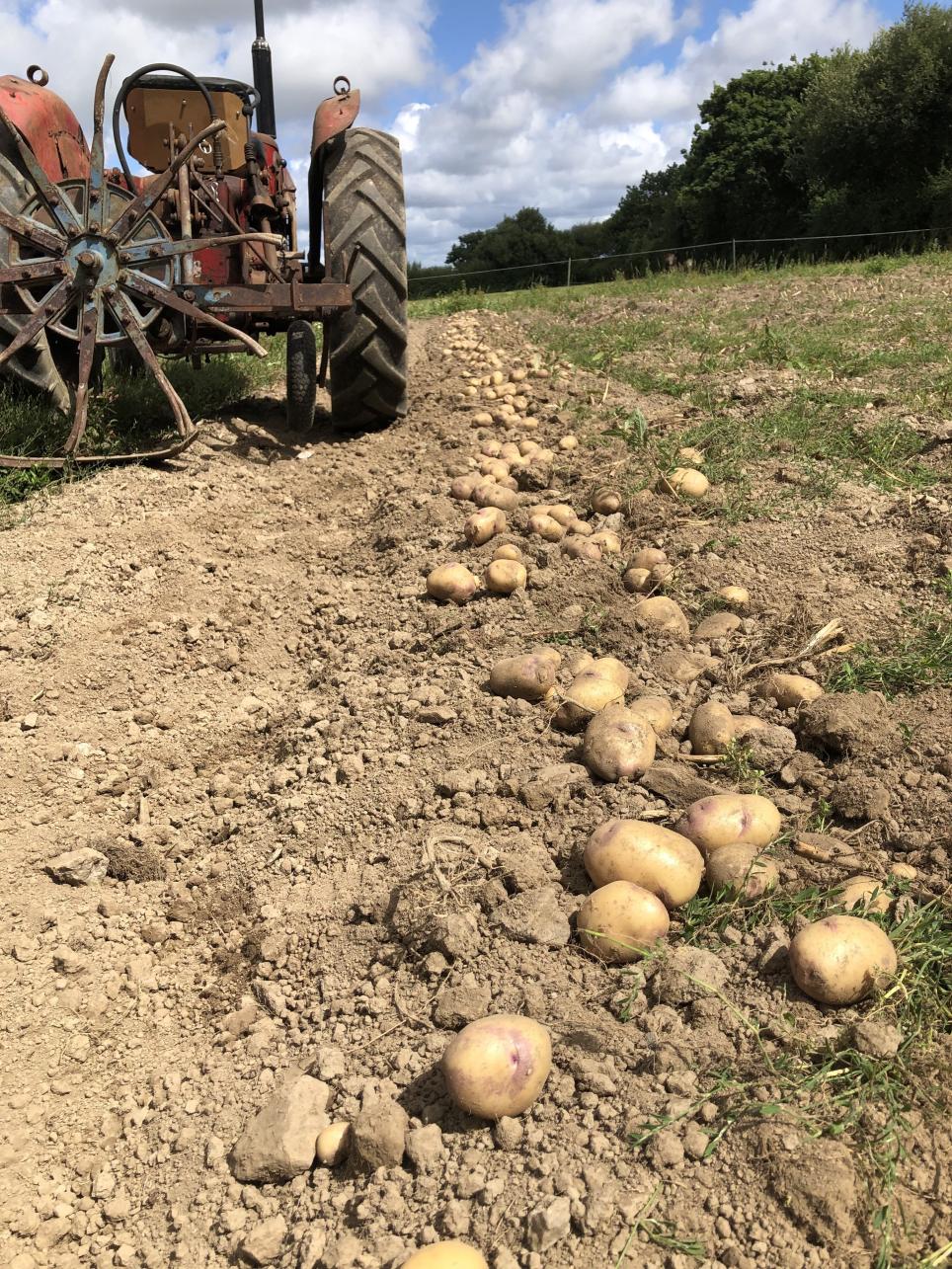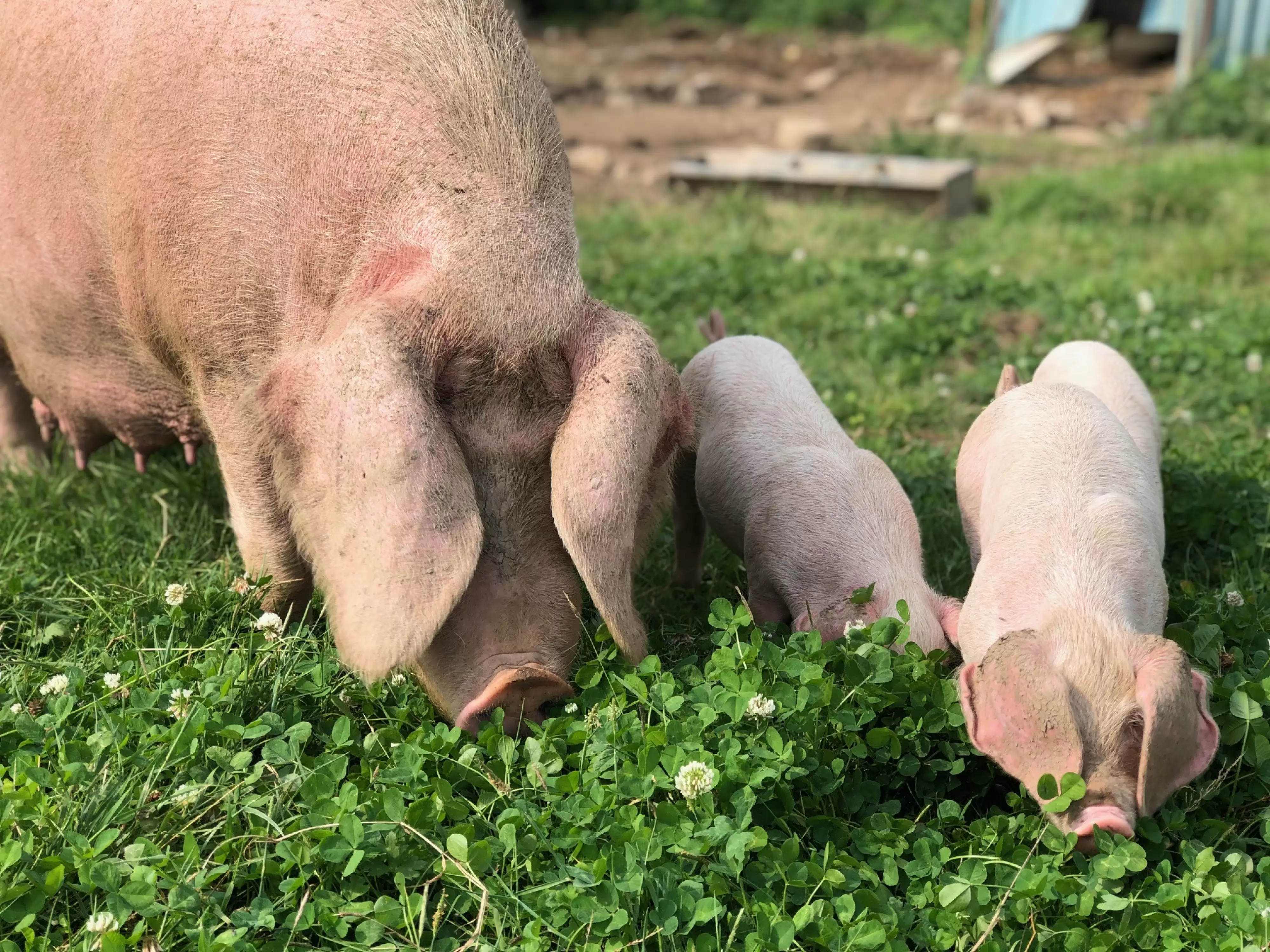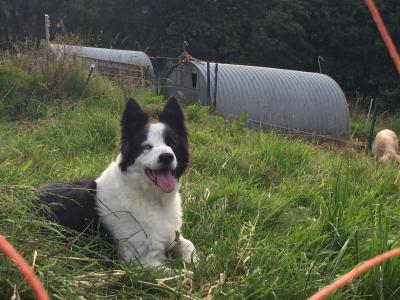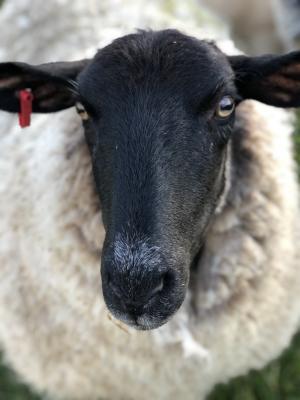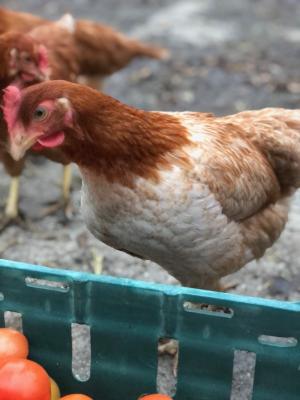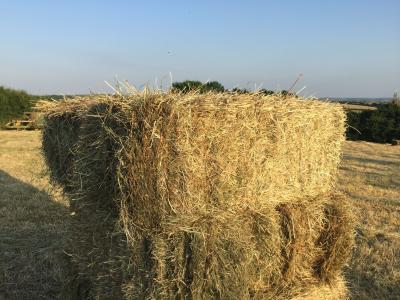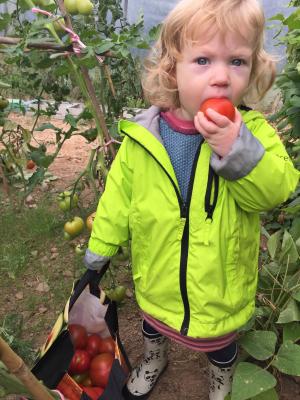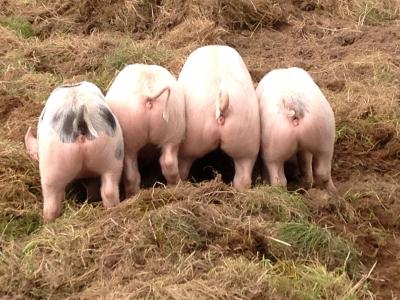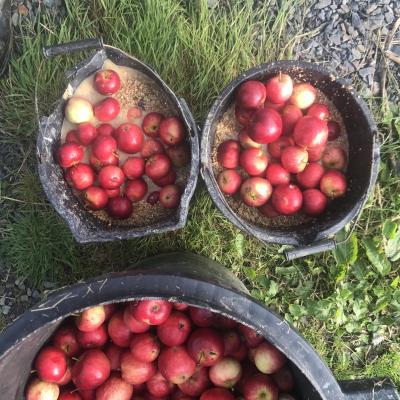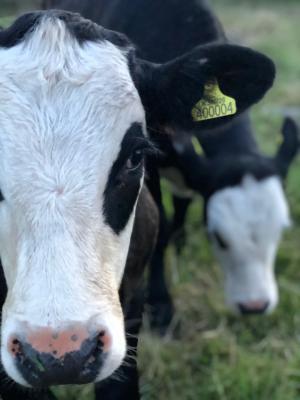
The Farm
The farm is just over 21 acres, 4 of which are the campsite, which originally started off as ‘piggy field'. Run under the countryside stewardship scheme for many years, we avoid the use of chemicals and antibiotics, except where absolutely necessary for the animals wellbeing. Weather dependent, we grow our own barley or oats, turnips, kale or fodder beet as well as making hay, straw and haylage, to supply Winter food and bedding for the cattle and sheep.
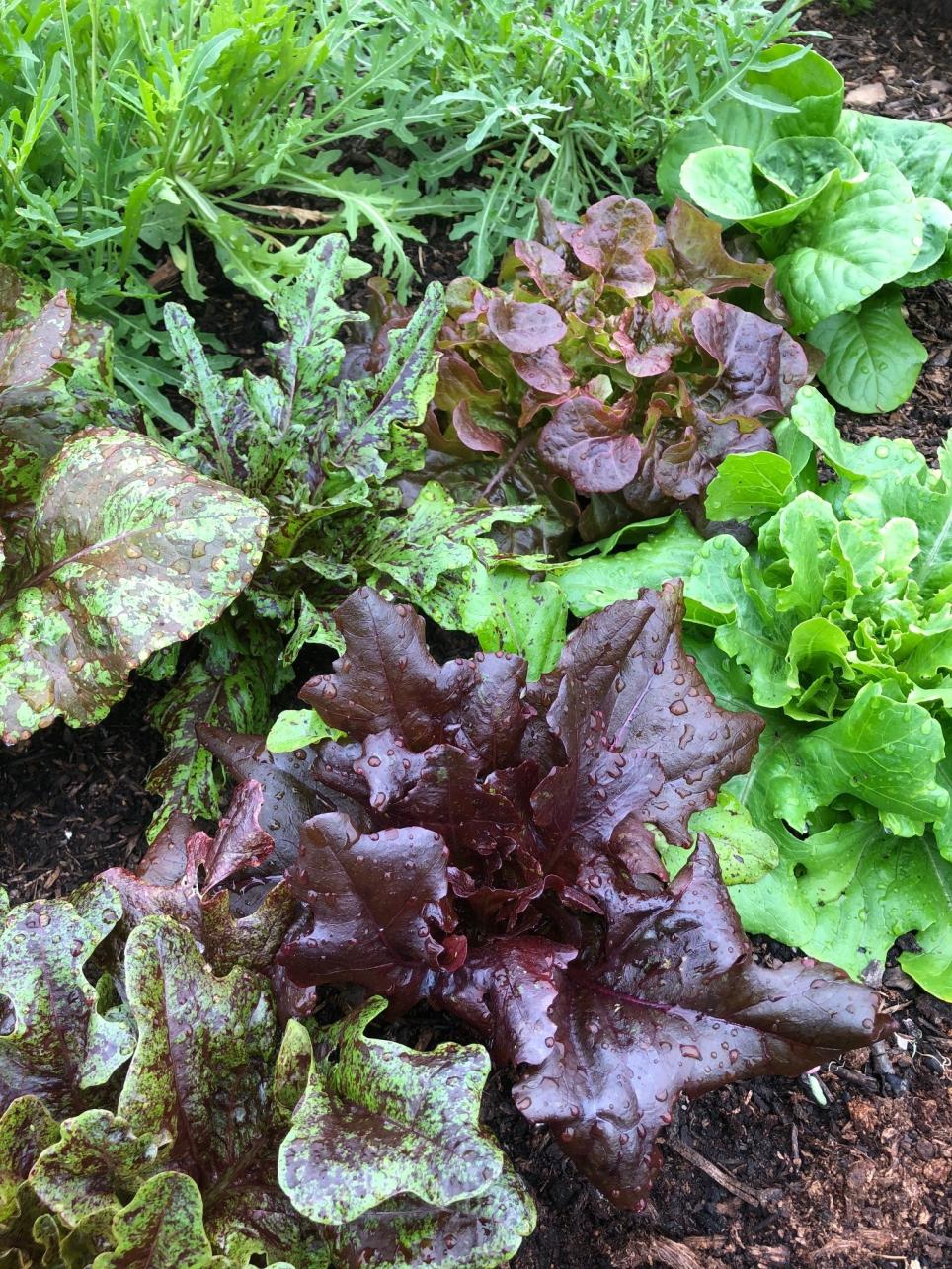
Growing vegetables has always been an important part of the cycle of the farm. Large compost bins provide a supply of home made compost for no dig beds, with the compost made from garden waste, waste paper, muck and the campsite grass cuttings. The chickens and pigs also benefit from the garden, enjoying brassica leaves, any oversized courgettes and wonky vegetables. Typically there are runner beans, potatoes, tomatoes, carrots, cucumbers, kale, squashes, french beans, cauliflower, salad leaves, spinach and flowers grown every year. Much of which is available for campsite visitors to purchase.
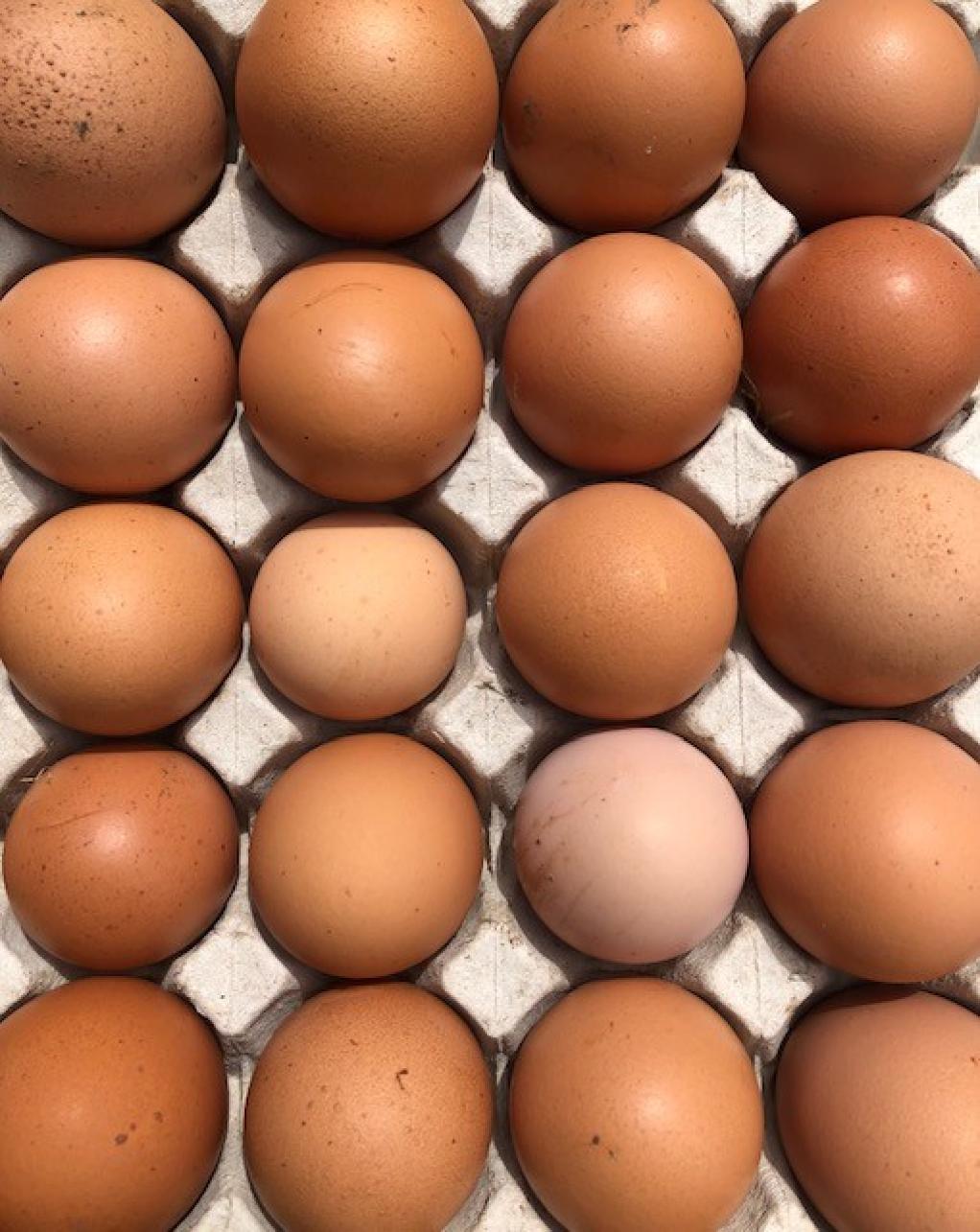
The livestock at the farm includes; chickens for egg production, Hereford X beef and breeding cows, Cornish Lopp x Welsh pigs for pork, bacon and sausages and Suffolk Mule ewes for lamb and when available, visitors are able to purchase Over the years we’ve also had geese, goats and milking cows.
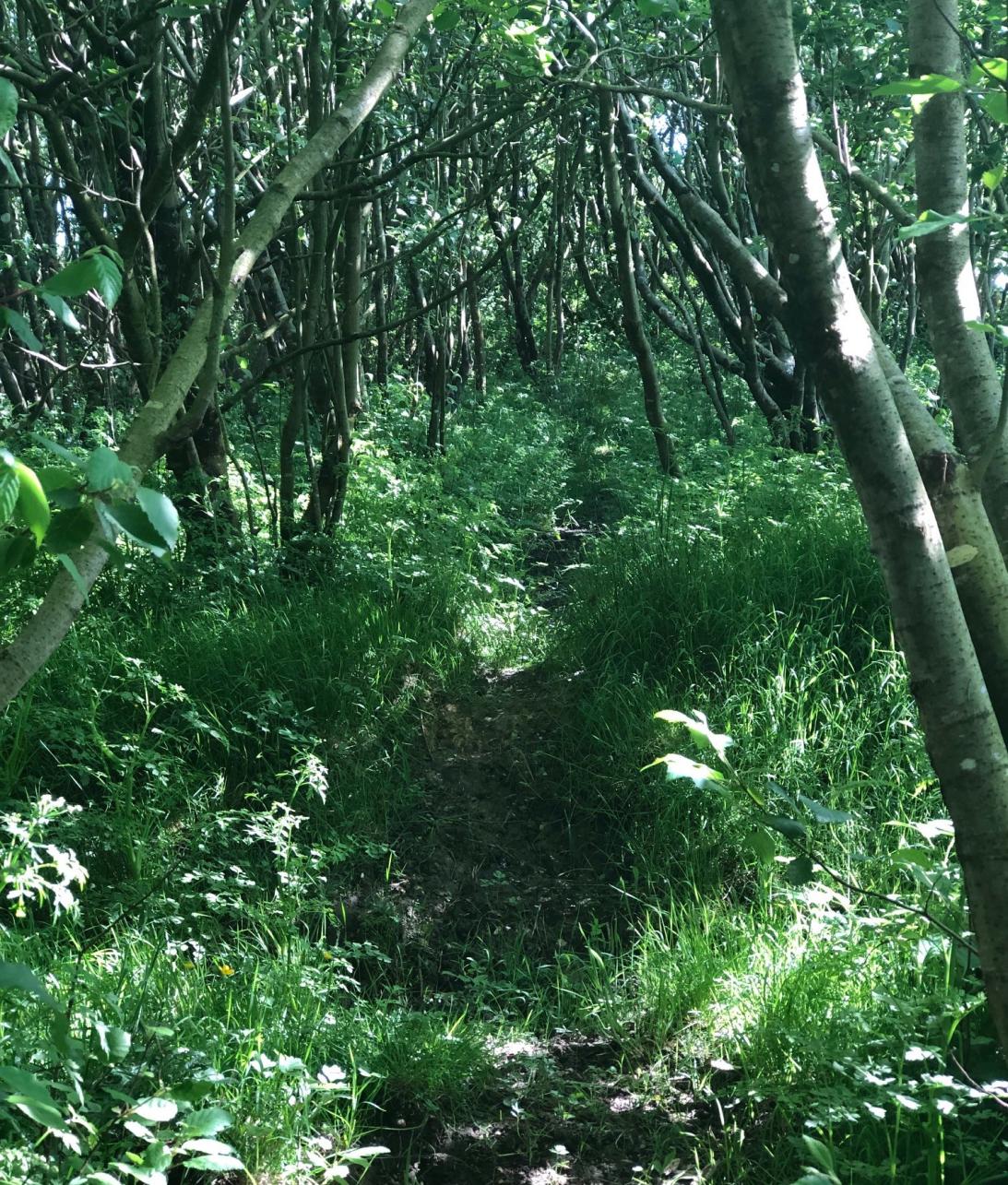
In 2003, Bernard planted over 20 trees in memory of Judy. Alongside the acre of coppice woodland, they previously planted together and now named 'Judy's Wood', the coppice provides sustainable firewood for the farm. The sheep and cows roam into the woodland, and while the weather is good the pigs move down to the woods and live alongside various wildlife including hares, a herd of wild deer and buzzards. The animals live outside as much as possible, unless the weather means they have to come in and all the fields including the campsite are protected by thick Cornish hedges, which in August and September are full of slows and blackberries.
